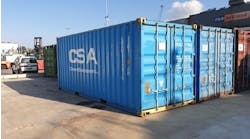New BOEM regulations threaten independent Gulf of Mexico operators
Josh Sherman
Opportune
The drilling industry knows all too well that the pain of the current commodity down-cycle extends far beyond E&P producers. The decline in rig counts and day rates have tracked crude oil prices, leading to market capitalization and liquidity levels that threaten the future existence of many offshore drilling companies operating in the Gulf of Mexico’s outer continental shelf.
Now, a new and potentially devastating storm is threatening the United States Gulf Coast and the offshore drilling industry. Unlike the turbulence caused by the market forces of supply and demand over the past two years, this is an economic storm fueled by ill-conceived changes in regulation.
Rather than using this opportunity to encourage future development of the OCS, while still protecting the taxpayer, the US Department of the Interior has taken dead-aim at reducing drilling in the OCS. In April 2016, the Interior Department’s Bureau of Safety and Environmental Enforcement (BSEE) issued final well control rules that will add extensive costs and technological complexities to offshore drilling and production.
This past July, the Interior’s Bureau of Ocean Energy Management (BOEM) issued a notice to lessees which was a solution looking for a problem, creating the potential to increase and accelerate risk to the US taxpayers and Gulf Coast economy in a way unseen since the 2010 moratorium on offshore drilling. Specifically, the BOEM’s new rule will change the way the oil and gas industry funds the decommissioning costs of wells, pipelines, and other facilities (commonly referred to as plugging and abandonment, or P&A) in the OCS.
On July 14, 2016, BOEM issued a Notice to Lessees (NTL) that will force companies to post supplemental surety bonds or other collateral to insure 100% of future P&A costs for OCS oil and gas properties.
BOEM states that the new NTL is meant to protect the US taxpayer from ever having to pay decommissioning costs for an oil and gas company that falls into bankruptcy. To date, most companies have been exempt from supplemental bonding, provided that their tangible net worth exceeds $65 million and is at least two-times the amount of their estimated P&A liabilities.
Although BOEM claims the measure has been taken to protect US taxpayers from having to pay decommissioning costs for bankrupt oil and gas companies, Opportune’s newly released research shows that the NTL is an overreaching regulation that attempts to solve a non-existent problem.
Opportune has conducted an independent study to calculate potential risks to the US taxpayer with the assistance of their valuation, petroleum engineering, and financial reporting experts. Through analyzing P&A cost data and market research, Opportune has shown how the NTL could jeopardize independent businesses and communities.
For the most probable outcome, which assumes an oil price of $75/bbl, Opportune estimates that the offshore drilling and service industries will lose approximately $9 billion of future revenue over the next 10 years as a direct result of the NTL.
The study’s key findings show clearly why the BOEM should reassess this NTL; these are outlined below.
The risk is strongly overstated. The US taxpayer has never been required to pay to P&A an OCS property.
Flawed assumptions and inaccurate data.The US Government Accountability Office acknowledges that the database used by BOEM is limited in its ability to accurately and completely record cost estimates of decommissioning liabilities.
Exposes taxpayers to heightened risk.Smaller independent oil and gas operators will be unable to obtain the required supplemental bonding: the NTL will become a catalyst to spur the bankruptcy risk from which it was intended to protect the US taxpayer.
Reduces OCS hydrocarbon production.The NTL will result in reduced offshore drilling and production, particularly in the shallow water of the OCS.
Reduces royalty revenues to government. The NTL will result in sharply lower US royalty revenue as operators scale back production.
Jeopardizes communities and jobs.The NTL will cause reduced revenues and operations for companies serving the OCS offshore industry, resulting in a commensurate loss of jobs and community/tax revenues along the Gulf Coast, particularly Texas and Louisiana.
There is a better way.Current guidelines can be modernized to encourage OCS development, as detailed in the study, which will achieve BOEM’s goals without jeopardizing the industry’s viability or increasing risk to the US taxpayer.
The study proposes three potential areas of improvement to the existing regulatory structure that would provide support to OCS operators as well as protect taxpayers:
- Reaffirm financial assurance vehicles
- Recognize existing and future private bonds between current and previous owners as additional financial assurance to cover P&A obligations
- Improved bonding requirements through a new cash reserve fund that is self-funded by lessees through future production.
- Better accuracy in data gathering
- Require independent CPA firms to issue annual agreed upon procedures reports attesting to the lessees’ cost and collateral information
- Better title transfer processes.
- Improved valuation processes
- Value P&A liabilities using the discounted asset retirement obligation balance from lessees’ audited financial statements
- Apply present value analysis, other steps to avoid a double jeopardy effect on bonding requirements.
Without applying these recommended changes, the proposed regulations could pose an existential threat to many independent oil and gas operators and drilling companies on the OCS, as well as for the communities and families that rely on these companies for their livelihoods.
“The amount of governmental overreach and regulation in our industry is unparalleled and the negative effects will last for generations if they are not addressed with the utmost urgency,” according to Beau Blake, president and CEO of Blake International Rigs, LLC. “Oil and gas companies are currently feeling the strain of low commodity prices. If you add the lack of capital in the market, coupled with the new NTL bonding requirements, it will surely drive companies out of business, owing to the fact that these new regulations will strip O&G companies of their available cash to invest in new projects which will in turn eliminate more jobs.”
The study indicates that the US economy will experience a decline in gross domestic product of approximately $10 billion over a 10-year time horizon. Beyond the opportunity cost of wells not drilled and the resulting overall impact to the Gulf Coast, the reduction in development will result in lost royalties to the Interior of approximately $4.6 billion. Total direct and indirect costs of the NTL to the taxpayer are estimated to be approximately $14.6 billion.
The author




